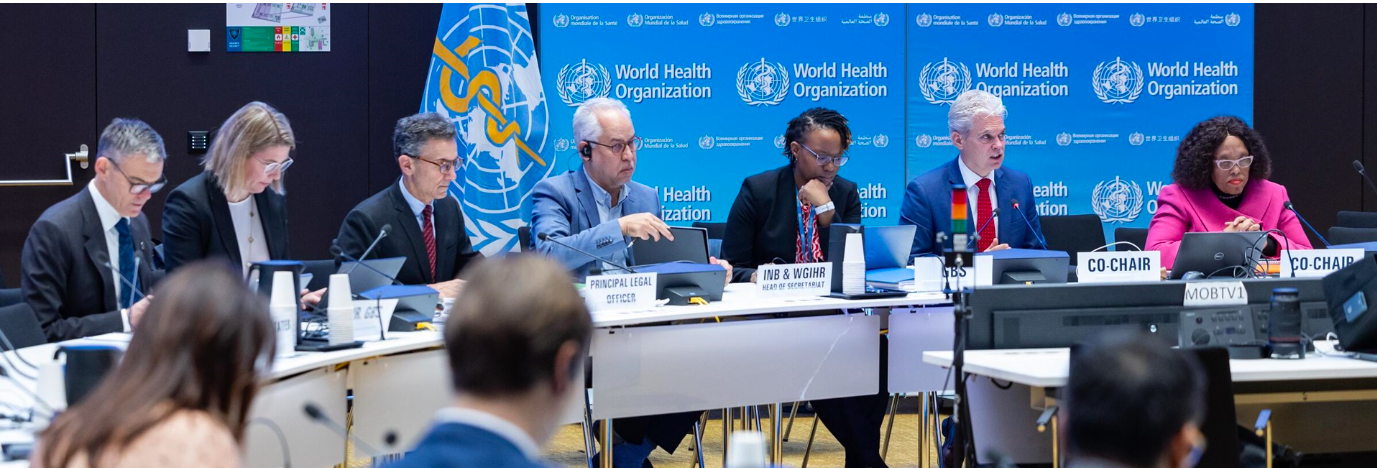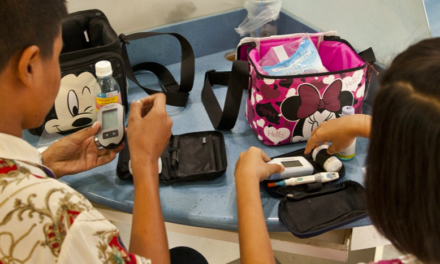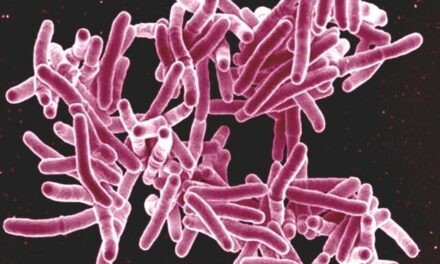
This seventh meeting of the Intergovernmental Negotiating Body (INB) ended on 6 December 2023 at the World Health Organization (WHO) headquarters in Geneva. Over two sessions, running from 6–10 November and 4–6 December, governments completed the review of the pandemic agreement negotiating text presented by the Member State-appointed Bureau of the INB.
Delegations from WHO Member States discussed a wide range of critical elements, including pandemic and public health surveillance, One Health and boosting pandemic preparedness, readiness and resilience in countries.
Equity and the right to health are among the guiding principles of the draft text of the proposed pandemic agreement under discussion. In this light, governments discussed the sustainable production of pandemic-related products; the transfer of technology and know-how to produce such items; and a multilateral system for access to pathogens and the sharing of benefits derived from them, such as vaccines and other pandemic-related products, to support prevention, preparedness and response.
Among other topics considered by Member States were the transfer to developing countries of technical and scientific expertise, and technology support, and sustainable financing to strengthen pandemic prevention, preparedness and response.
During the meeting, the challenge posed by the torrent of fake news, and disinformation and misinformation, directed at the pandemic agreement negotiations, was raised by the WHO Director-General, including on the false claim that any agreement would result in countries ceding sovereignty to WHO.
The draft pandemic agreement text, which is the basis for the negotiations, reaffirms the principle of sovereignty of States Parties in addressing public health matters, and that States have, in accordance with the Charter of the United Nations and the general principles of international law, the sovereign right to legislate and to implement legislation in pursuance of their health policies.
To accelerate its progress, the INB established four drafting subgroups led by the INB Bureau Vice Chairs, and co-facilitated by Member States, to consider the proposed articles on each topic. The INB recommended subgroups continue holding informal discussions with Member States and propose text for their respective articles by 15 January 2024 for consideration at the eighth INB meeting to be held from 19 February–1 March 2024. The ninth will take place from 18–28 March 2024.
The meeting was led by INB Co-Chairs Mr Roland Driece of the Netherlands and Ms Precious Matsoso of South Africa, and Vice-Chairs Ambassador Tovar da Silva Nunes of Brazil, Ambassador Amr Ramadan of Egypt, Ambassador Kozo Honsei of Japan, and Dr Viroj Tangcharoensathien of Thailand. Ambassador Ramadan has replaced Mr Ahmed Salama Soliman of Egypt, whose contribution to the process was recognized by the INB.
The INB was established in December 2021 at a special session of the World Health Assembly, and was tasked with organizing a series of meetings to negotiate a convention, agreement or other international instrument under WHO’s Constitution to strengthen pandemic prevention, preparedness and response.
The INB’s work to negotiate a pandemic agreement is based on the principles of inclusiveness, transparency, efficiency, Member State leadership and consensus. Governments lead the discussions on the pandemic agreement process and are currently expected to decide on any text at the next World Health Assembly in May 2024. WHO staff serve as the Secretariat to these discussions, supporting countries in their work, but do not participate in decision-making.
In parallel with the pandemic agreement process, governments are also negotiating amendments to the International Health Regulations (IHR). The latest meeting began on 7 December 2023; the proposed amendments are scheduled for consideration and adoption at the next World Health Assembly.
The IHR set out agreed approaches and obligations for countries to prepare for, and respond to, disease outbreaks and other acute public health risks. The proposed amendments come in response to the challenges posed by the COVID-19 pandemic.











